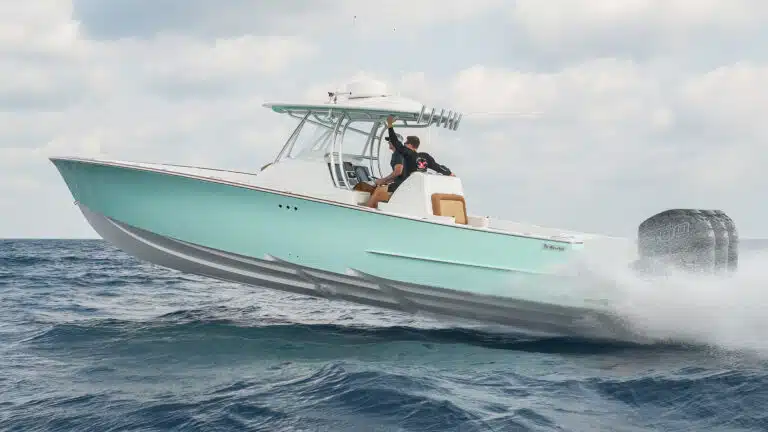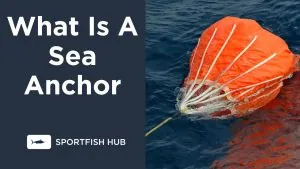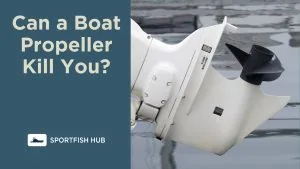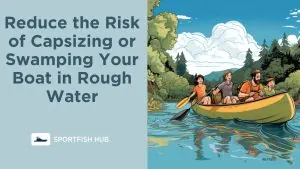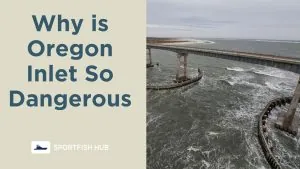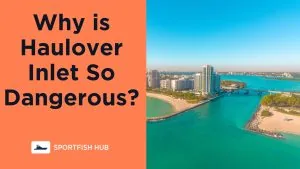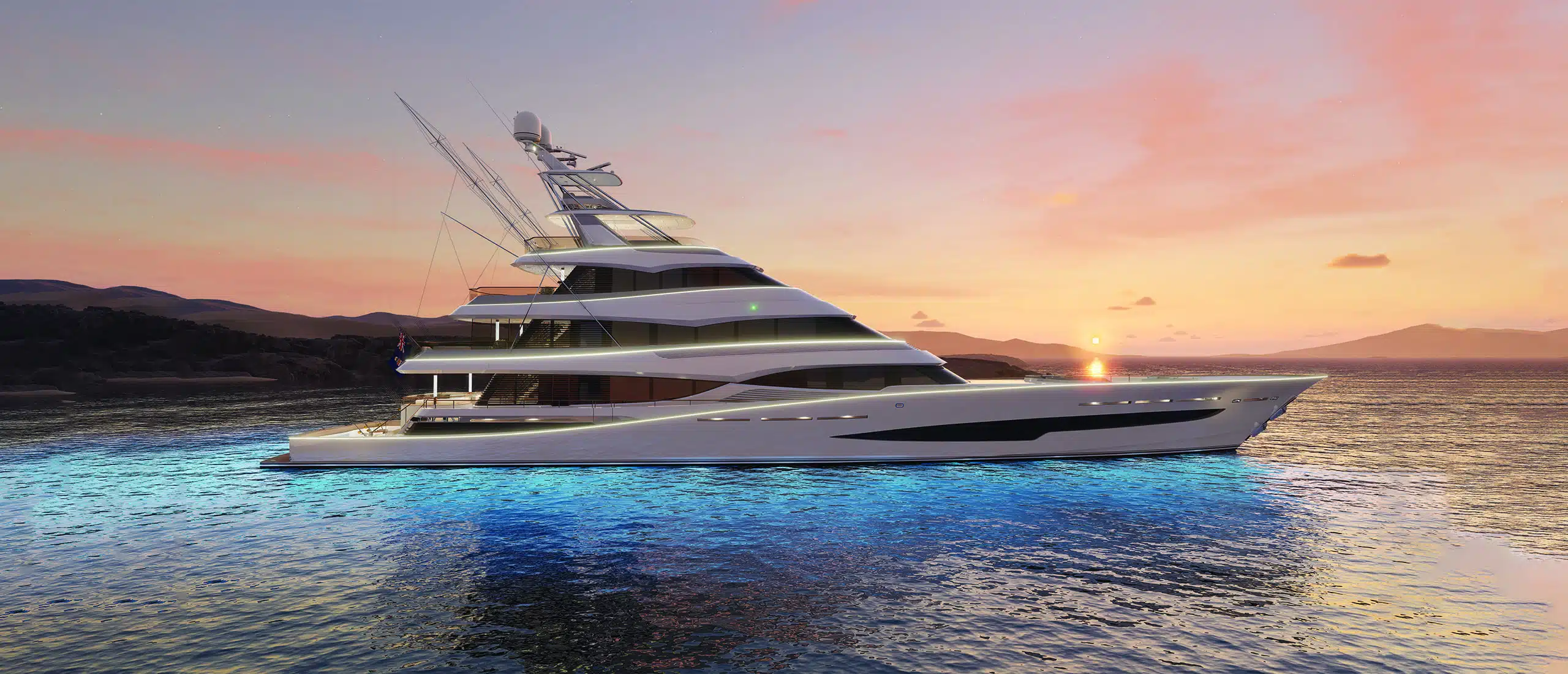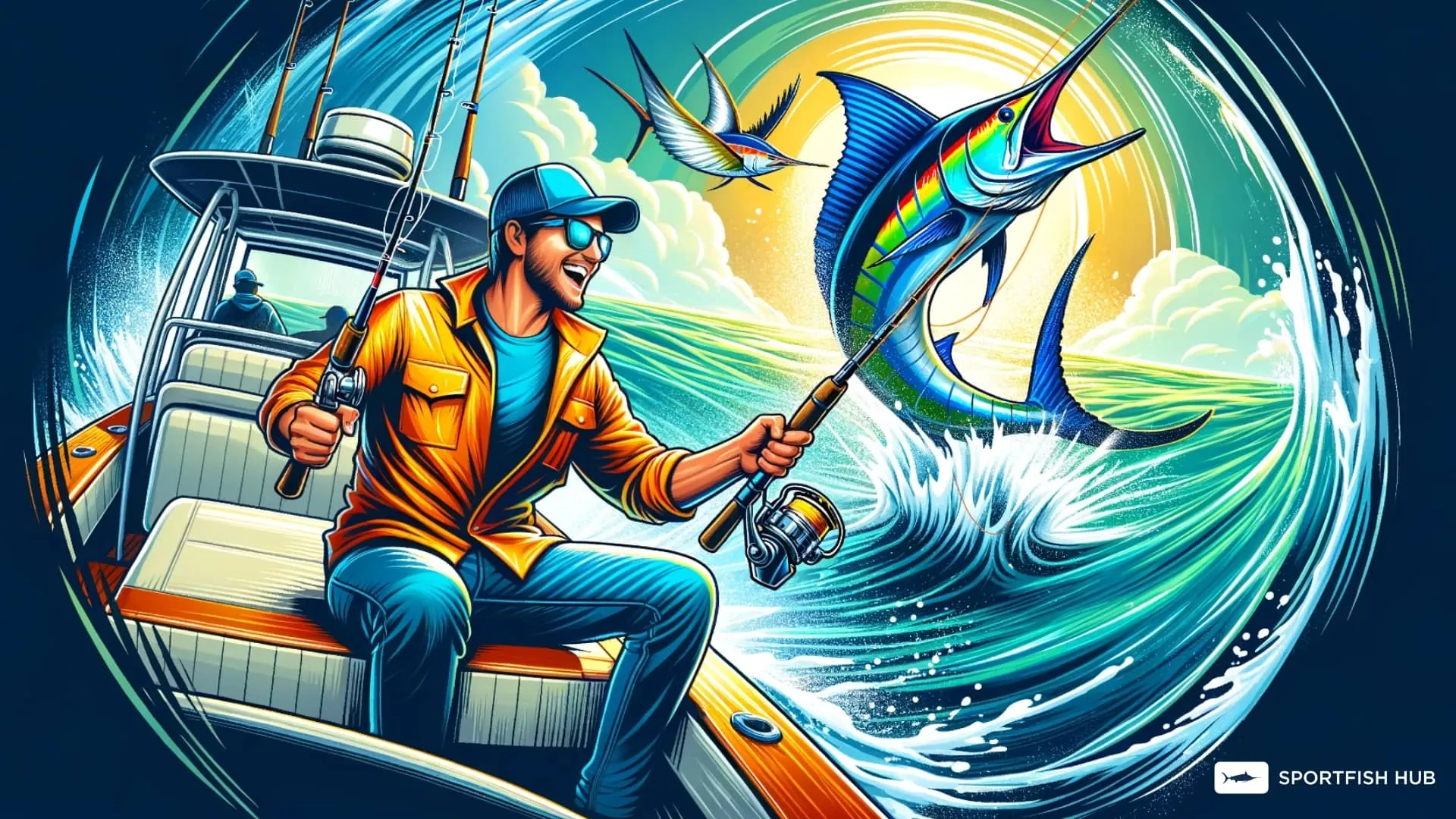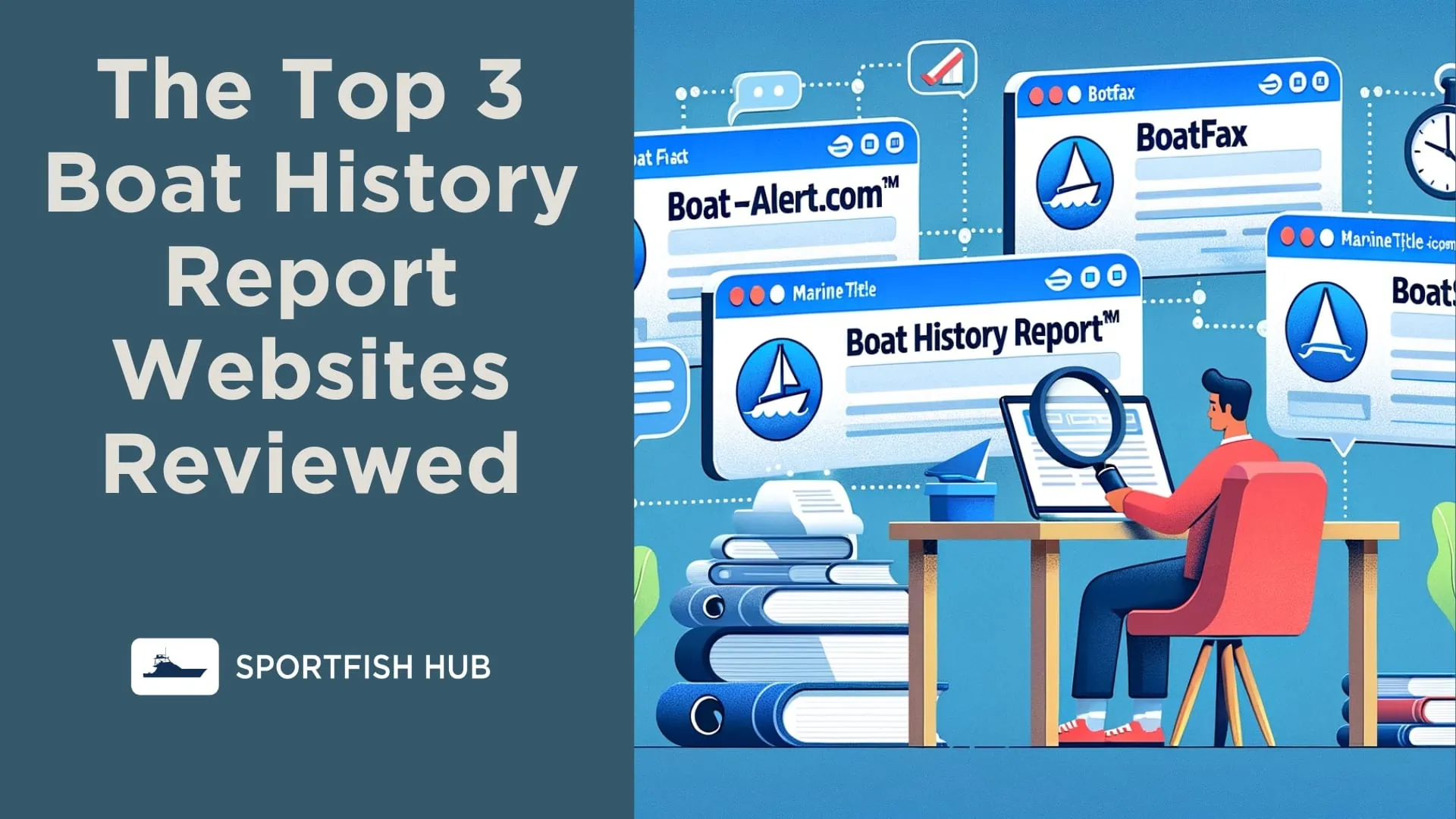Boating on lakes, rivers, and coastal waters often involves sharing the space with recreational fishing boats. As a responsible boater, it’s crucial to understand proper etiquette when navigating near anglers to ensure a safe and enjoyable time for everyone on the water. One of the most vital practices is to slow down while passing recreational fishing boats.
See also: How Should You Safely Pass a Fishing Boat?
Benefits of Slowing Down
Slowing down around recreational fishing boats provides several key benefits:
- Preventing accidents and injuries – A slower speed allows more reaction time to avoid collisions. This enhances safety for passengers on both vessels. Sudden wakes at high speeds could also cause a fishing boat to capsize or passengers to fall overboard.
- Avoiding damage to fishing gear – Speeding boats can tangle with fishing lines and nets. Slowing down reduces this risk and the costly damages that could result.
- Minimizing disruption to fishing – The wakes from fast boats will scatter fish and disturb bait presentation. Slowing down helps anglers continue fishing without interference.
- Demonstrating courtesy – Reducing speed shows respect for others using the waterway and their right to enjoy their activity without disruption.
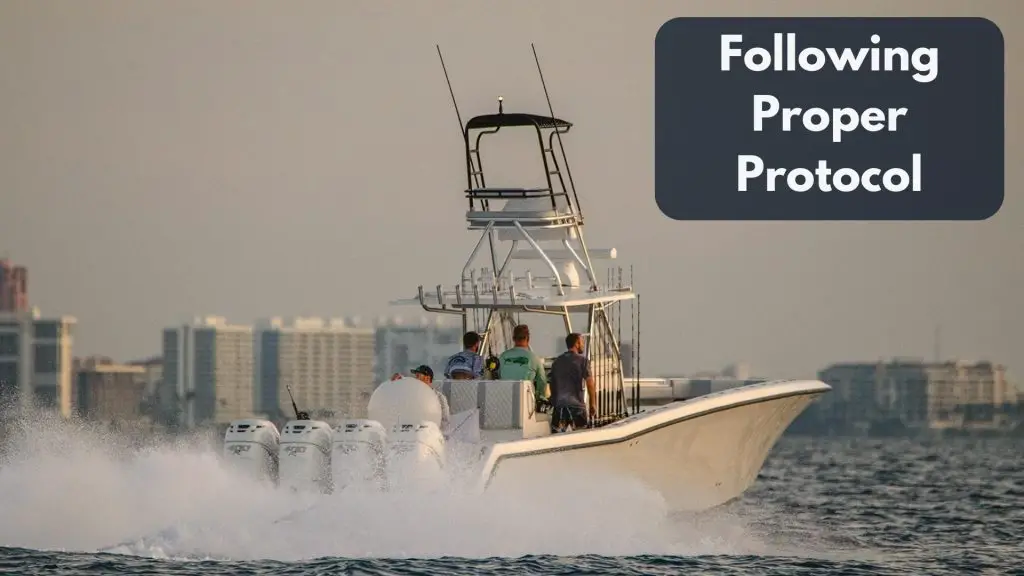
Following Proper Protocol
Whenever passing a fishing boat, proper protocol should be followed:
- Reduce speed early – Don’t wait until the last moment. Start slowing down well in advance.
- Pass at a safe distance – Give fishing boats a wide berth, maintaining at least 150 feet between vessels.
- Avoid passing on the fishing side – If possible, pass on the opposite side from where lines are cast.
- Be aware of gear in the water – Look for nets, lines, bait buckets, etc. that may extend from the boat.
- Communicate if needed – Sound your horn or hail the fishing boat to coordinate a safe passing.
- Watch your wake – After passing, check that your wake does not swamp or disturb the fishing boat.
Tips for Recreational Boaters
Here are some key tips for recreational boaters when encountering a fishing boat:
- Obey speed limits – Stay within designated speed limits, especially in marinas and narrow channels. This gives ample reaction time.
- Look ahead – Scan constantly for other boats in your path, including anchored or slow-moving fishing boats.
- Avoid distractions – Focus your attention ahead and be prepared to alter course or speed. Don’t be distracted while navigating.
- Know navigation rules – Understanding right-of-way and stand-on vessel rules helps avoid mishaps.
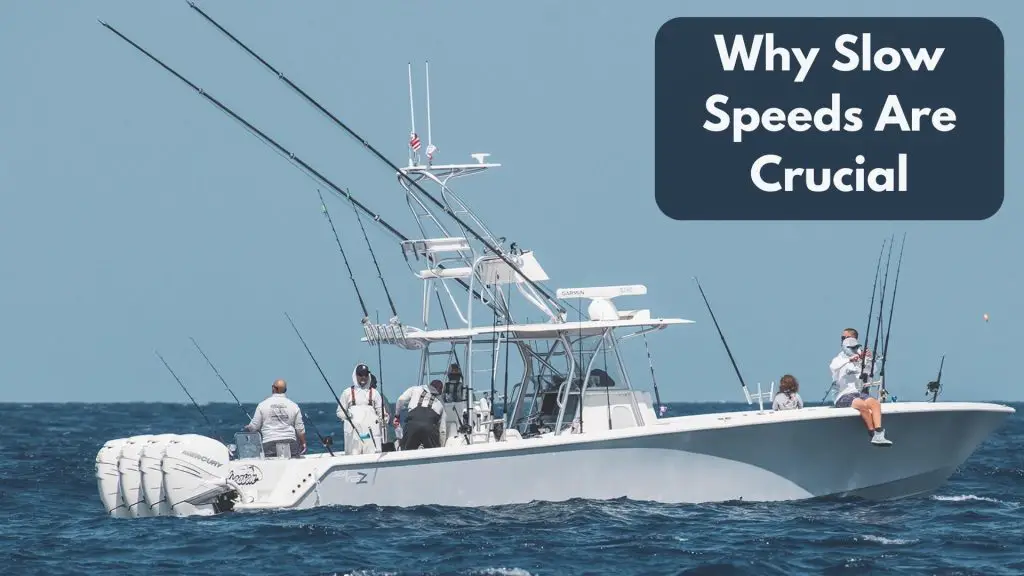
Why Slow Speeds Are Crucial
There are several reasons why lower speeds are so critical around fishing boats:
- Fishing boats sit lower in the water, making them more susceptible to rocking, instability, and taking on water from wakes.
- Anglers on fishing boats are often focused on their lines, not navigation, making them prone to unexpected maneuvers by speeding boats.
- Fishing boats have less powerful engines and are less agile, limiting their ability to get out of the path of speeding vessels.
- The configuration of fishing boats, with equipment and gear on all sides, reduces the operator’s visibility and capability to see approaching boats.
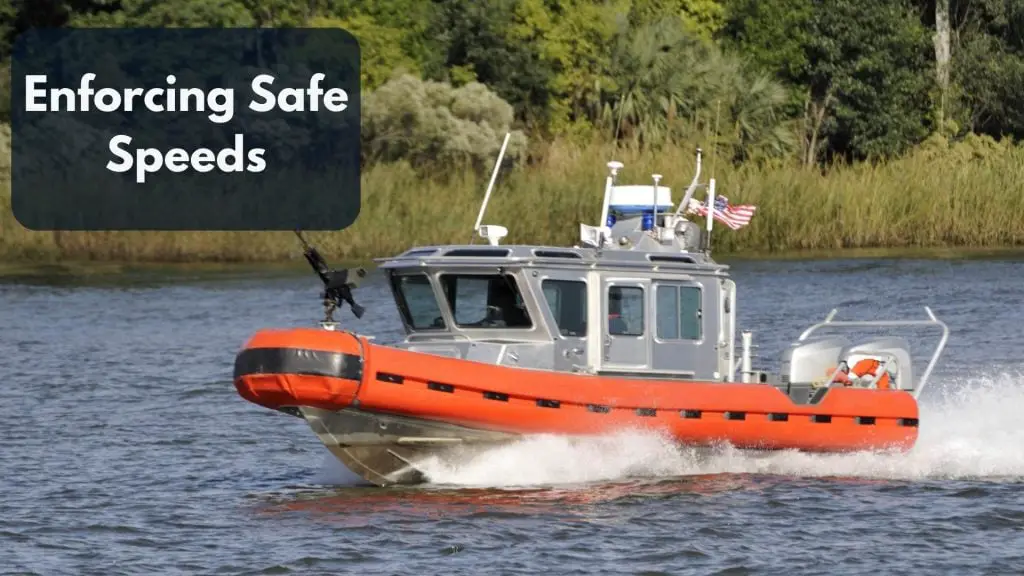
Enforcing Safe Speeds
Law enforcement agencies like the U.S. Coast Guard strictly enforce safe boating speed regulations. Violations can result in hefty fines and penalties, including:
- Speeding in no-wake zones – $250 minimum fine for first offense
- Operating recklessly – $500 fine and potential criminal charges
- Speeding in channels or restricted areas – Up to $1000 fine
Summary
Slowing down around fishing boats not only demonstrates courtesy but also complies with the law. Don’t risk dangerous operation and expensive penalties – reduce speed appropriately.
By following safe boating practices around recreational fishing boats, we foster an enjoyable environment where all waterway users can follow their passions without interference or risk of harm. Being aware of proper protocol and making small adjustments to speed makes a big impact on safety.
FAQ
-
When must a boat operator reduce speed?
Boat operators must reduce speed where boating is concentrated and congested.
-
What is the golden rule of boating?
The golden rule of boating is to wear your life jacket.
-
What is a boat operator required to do at all times?
At all times, a boat operator must keep per lookout using sight and hearing.

